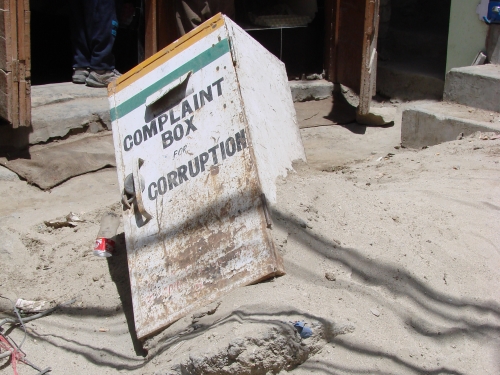
This article was originally published by Open Democracy on 4 September, 2015.
This summer in Pakistan, a massive corruption scandal erupted involving collusion between between political parties and public officials over illegal land-grabbing in the city of Karachi, capital of the country’s most populous province, Sindh. A report published in June 2015 by the Pakistani Rangers, a legal paramilitary force under the direct control of the interior ministry, provided hard evidence of the so-called “evil nexus”.
The role of political parties is important, for in Pakistan they are perceived – along with the national police force and civil servants – as among the most unreliable and corrupt institutions. Data from Transparency International confirms this distrust, which this most recent scandal did nothing to rebuild. Instead it stands as yet another example of how dirty money, when it seeps into politics, can seriously damage democratic institutions.

